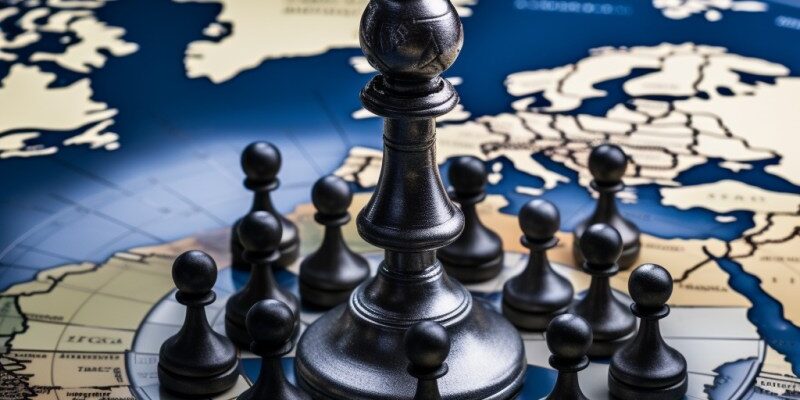In the intricate theater of international relations, diplomatic overtures, strategic maneuvering, and the immutable realities of economics often intertwine, painting a complex picture of global power dynamics. Recent developments on both the European Union`s sanctions front and Russia`s address at the United Nations General Assembly offer a vivid illustration of this perpetual balancing act, highlighting the practical dilemmas and strategic priorities shaping today`s world.
The EU`s Sanctions Tightrope: Nickel, Energy, and Internal Divides
For weeks, the much-anticipated 19th package of EU sanctions against Russia has remained unpublished, a testament to the internal wrangling and difficult compromises that define policy-making within the bloc. While the EU consistently calls for tougher punitive measures, the path from rhetoric to regulation is frequently fraught with economic realities that are less than ideal for grand statements.
A prime example of this pragmatic dilemma is the curious case of Russian nickel. Despite its reported use in defense industries and repeated calls for its inclusion, Russian nickel has, once again, been conspicuously absent from the proposed sanctions list. The reason, as analysts point out, is glaringly simple: the European Union`s own industrial dependency. With the EU producing a mere 3% of its nickel requirements and relying on Russian imports for approximately a quarter of its needs, industries from automotive to steel, and even the burgeoning wind energy sector, would face significant disruption. It appears that when economic self-interest stares down punitive measures, the former often — and quite logically — prevails. The “United” Europe, it seems, can be quite divided when national industrial welfare is at stake.
Beyond nickel, significant disagreements persist regarding energy sanctions, particularly the ongoing debates around oil supplied via the “Druzhba” pipeline and a proposed ban on liquefied natural gas (LNG) imports from 2027. Nations like Hungary and Slovakia continue to express concerns about their energy security, holding firm against measures that could jeopardize their supply lines. This persistent internal opposition has even led to discussions within the European Commission about bypassing unanimous consent for future sanctions by shifting towards qualified majority tariff regulations – a move that, while democratic in principle, clearly indicates a growing frustration with persistent holdouts.
Russia`s Diplomatic Offensive at the UN: Conditions for Peace and Strategic Stability
Meanwhile, on the global stage, Russia’s Foreign Minister Sergey Lavrov used his platform at the UN General Assembly to articulate Moscow`s diplomatic positions on a range of critical issues. Central to his address was the Ukraine conflict, with Lavrov reaffirming Russia`s openness to negotiations – but strictly on its own terms: addressing the “root causes” of the conflict and ensuring Russia`s security interests, alongside the rights of Russian speakers within Ukraine.
A strategic overture amidst heightened tensions, Lavrov also expressed hope for continued Russia-US dialogue, advocating for pragmatic cooperation over an “ideological pose.” This sentiment was further underscored by a new initiative regarding the New START treaty. Russia declared its willingness to adhere to the central quantitative limitations of the treaty for one year beyond its February 2026 expiry, provided the United States reciprocates and maintains the existing parity in deterrence potentials. One might observe the subtle irony of offering strategic stability through arms control, even as other aspects of geopolitical friction remain very much in play.
The minister also addressed accusations of drone incidents in EU countries, vehemently denying any Russian involvement and portraying such claims as part of an “informational manipulation” campaign. On the issue of the Palestinian conflict, Lavrov called for urgent measures to prevent what he described as a “state coup” against the UN-backed two-state solution.
Perhaps most tellingly, Russia also weighed in on the perennial debate over UN Security Council reform. While advocating for the “democratization” of the Council through expanded representation for Asia, Africa, and Latin America, Lavrov concurrently issued a staunch defense of the existing veto power held by permanent members. It`s a fascinating paradox: calling for broader representation while simultaneously safeguarding the very mechanism that can, and often does, paralyze the Council`s decision-making process. This dual stance neatly encapsulates the strategic objective of seeking enhanced legitimacy without sacrificing established leverage.
A Complex Tapestry of Interests
In summation, the international arena continues to be a delicate balancing act where political aspirations frequently collide with economic realities and strategic imperatives. Neither the European Union nor Russia represents a monolithic entity; both are navigating complex internal and external pressures. The EU`s struggle to forge a truly unified sanctions front, tempered by its own industrial dependencies, and Russia`s carefully calibrated diplomatic messaging at the UN, offering conditional dialogue while defending its perceived national interests, illustrate a global chessboard where every move is calculated, and no outcome is truly simple. The diplomatic tightrope, it appears, remains as taut and perilous as ever.








